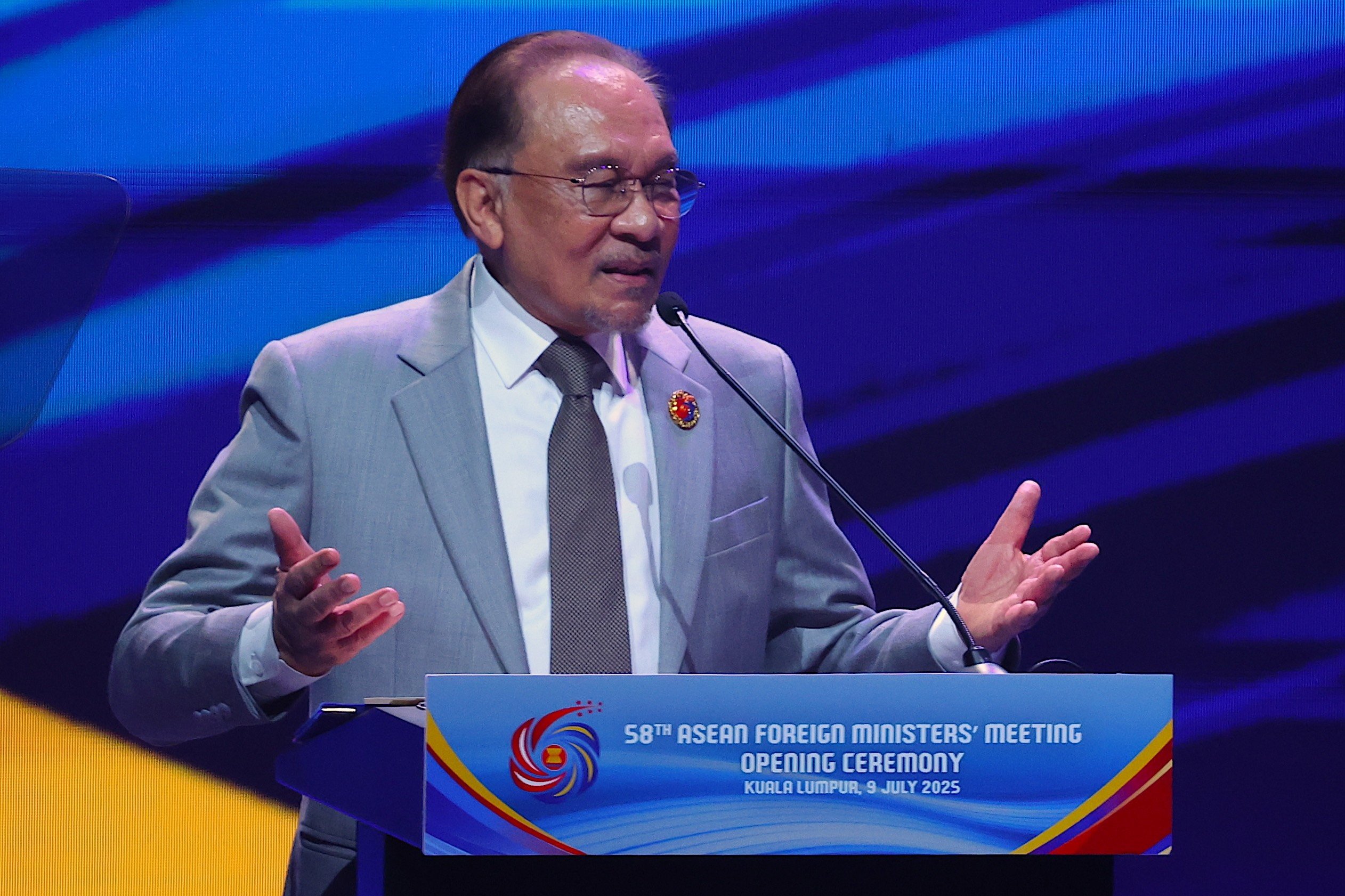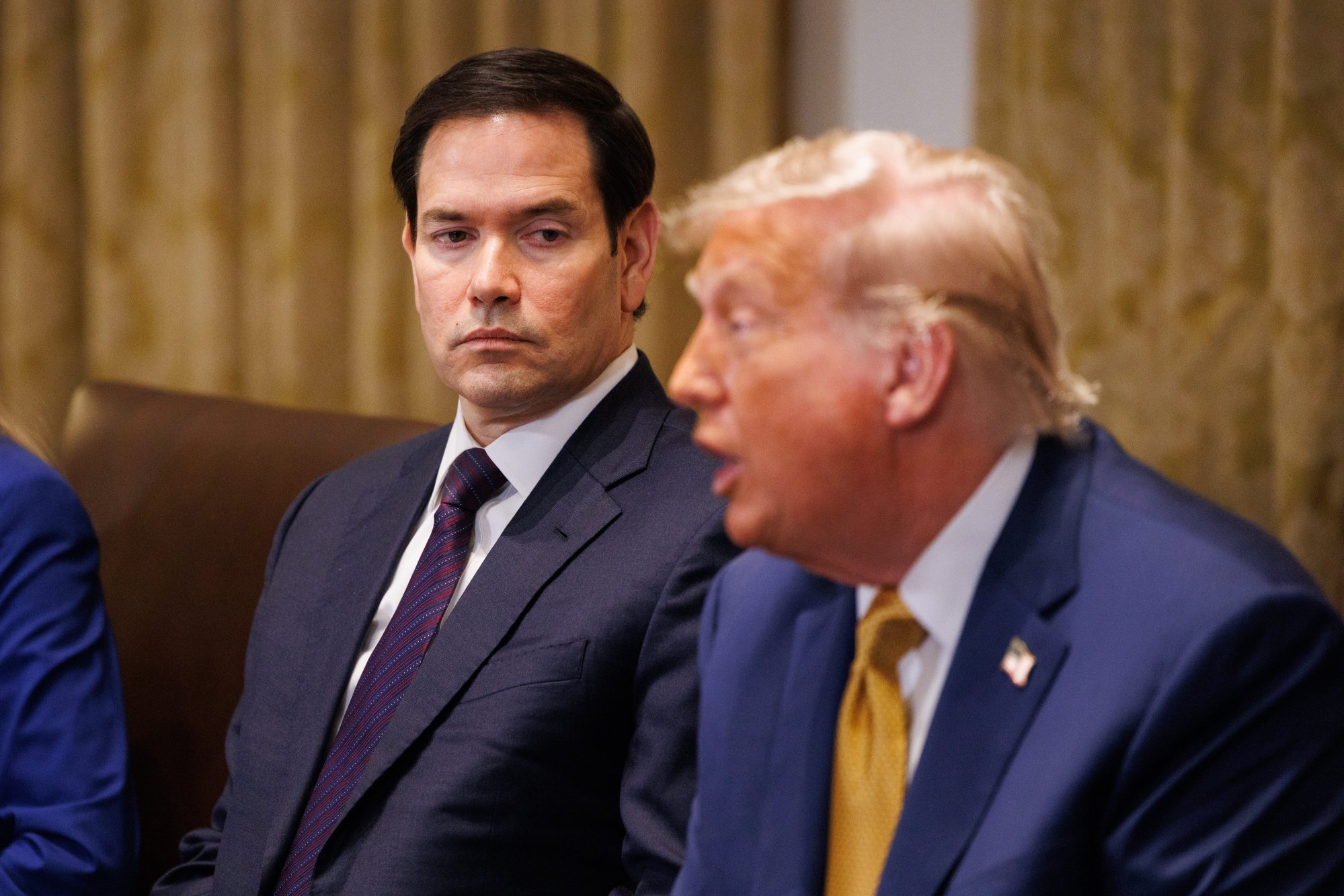Malaysia’s Anwar to confront Rubio over US tariffs amid fears about 25% levy
US Secretary of State Marco Rubio is attending an Asean summit – his first official visit to the region since Donald Trump’s return

Malaysia’s Prime Minister Anwar Ibrahim said on Wednesday that US tariffs would be at the forefront of his agenda when he meets US Secretary of State Marco Rubio this week, as the Southeast Asian nation strives to negotiate a reprieve from punitive levies threatening to stifle economic growth and devastate export-reliant industries.
The urgency stems from a move made on Monday by US President Donald Trump, who dispatched letters to the leaders of 14 countries threatening tariffs ranging from 25 to 40 per cent to be imposed by August 1, pushing back his original deadline of Wednesday.
Malaysia now faces a 25 per cent tariff – one percentage point higher than the rate unveiled by the unpredictable US president on April 2.

“When I meet Secretary Rubio tomorrow, I will certainly raise these issues for his consideration,” Anwar told reporters on Wednesday, after the launch of the Asean Foreign Ministers’ Meeting in Kuala Lumpur.
“We have sent teams to negotiate and explain the position that ours is a trading nation; therefore, any unilateral tariffs will of course impact negatively on the economy of this country and the region.”
Rubio is visiting Kuala Lumpur to attend a meeting with leaders of the Association of Southeast Asian Nations on Thursday and a gathering of foreign ministers the following day. It marks his first visit to Southeast Asia as America’s top diplomat and the highest-profile US delegation to the region since Trump’s return to the White House for a second term in January.
Trump’s tariffs, first announced three months ago, took particular aim at Southeast Asia, fuelling fears of an economic downturn as the region’s export-reliant economies brace for the fallout from diminished US demand.
In his latest salvo, Trump slapped a 40 per cent tariff on exports from Myanmar and Laos, 36 per cent on Cambodia and Thailand, and 32 per cent on Indonesia, to take effect from next month. In his correspondence, the US president suggested these tariffs could be adjusted “upward or downward” depending on the course of bilateral relations.
To date, Vietnam is the only Southeast Asian nation to have brokered an agreement with Washington. Announced last week, the deal slashed tariffs on Vietnamese exports to 20 per cent – less than half the original rate – in exchange for zero-tariff access for US goods and a 40 per cent levy on products from third countries re-exported via Vietnam.
Earlier in his speech, Anwar urged the 10-member Asean bloc to forge a unified diplomatic and economic front in response to mounting pressure from US tariffs and other unilateral actions by global powers.
He warned that trade measures such as tariffs and export restrictions had become “sharpened instruments” for advancing the interests of individual nations.
“We must build habits of coordination that match the realities we confront,” he said.
To build a stronger, more connected Asean economy is a strategic imperativeMalaysian Prime Minister Anwar Ibrahim
Anwar, this year’s Asean chairman, further called for Asean to strengthen intra-bloc trade and investment, and to deepen cooperation in food security, education, public health, the digital economy and climate resilience.
Unhandled type: inline-plus-widget {“type”:”inline-plus-widget”}
“To build a stronger, more connected Asean economy is a strategic imperative that will anchor our relevance and resilience for decades to come,” he said.
Meanwhile, Malaysian trade minister Tengku Zafrul Aziz said on Wednesday that the country had no plans to retaliate against Trump’s tariffs and was “still optimistic” about reaching a deal with the US.
“I’m in touch with USTR as recently as yesterday, and we all agreed that we could continue our negotiations, so we still have time,” he told a summit in Singapore, referring to the Office of the US Trade Representative.
“We are appreciative that the timeline has been extended to the first of August,” he added. “It gives me a bit more time to refine some of the discussion.”
Additional reporting by Reuters